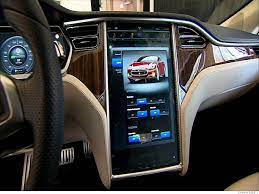The majority of automakers acknowledge they might be selling your personal information, however many are evasive about the purchasers, and half say they would share it with the government or law enforcement without a court order.
Automobiles have become enormous data-collection hubs thanks to the profusion of sensors they now contain, from telematics to fully digital control consoles. However, according to researchers for the nonprofit Mozilla Foundation’s most recent “Privacy Not Included” survey, drivers have little or no control over the personal data that their vehicles collect. Given the history of hacking vulnerabilities among automakers, the lack of clarity in security standards is a major worry.The research lead for the study, Jen Caltrider, said that “cars seem to have really flown under the privacy radar and I’m really hoping that we can help remedy that because they are truly awful.” “Microphones in cars are used for all kinds of critical discussions. The cameras in cars can be turned both inward and outward. Car purchasers “just don’t have a lot of options,” according to Caltrider, unless they choose a secondhand, pre-digital model. Among the more than a dozen product categories that Mozilla has examined since 2017—including fitness trackers, reproductive-health applications, smart speakers, and other connected home appliances—cars received the lowest privacy ratings.
None of the 25 automobile companies, chosen for their popularity in Europe and North America, whose privacy policies were examined met Mozilla’s minimal privacy requirements; Mozilla promotes open-source, public-interest technology and maintains the Firefox browser. As opposed to that, only 37% of the apps for mental health that the nonprofit assessed this year did. According to their notifications, 19 manufacturers claim they can sell your personal information. Instead of requiring a court order, half will share your information with the government or law enforcement in response to a “request”.
Only two automakers, Renault and Dacia (none of which are offered in North America), give customers the choice to remove their data. Although the researchers have little doubt that data brokers, marketers, and dealers are among the groups to which the automakers sell the information they collect, the automakers are evasive in their disclosures.
Additionally, data is being gathered by partners with installed goods and services, such as SiriusXM, Google Maps, and Onstar. According to Albert Fox Cahn, a technology and human rights fellow at Harvard’s Carr Center for Human Rights Policy, “Most cars are increasingly wiretaps on wheels.” “The electronics that drivers pay more and more money to install are collecting more and more data about them and their passengers.”He continued, “There is something particularly intrusive about turning one’s car into a corporate monitoring place.
The Alliance for Automotive Innovation, a trade association that represents the producers of the majority of vehicles and light trucks marketed in the US, disputed that assertion. It stated that it shares “the goal of protecting the privacy of consumers” in a letter that was delivered to the leadership of the US House and Senate on Tuesday.
The report recommended a federal privacy law, claiming that a “patchwork of state privacy laws creates confusion among consumers about their privacy rights and makes compliance unnecessarily difficult.” The lack of such a rule increases the likelihood of significant data theft through cybersecurity breaches while also allowing linked gadgets and smartphones to gather data for customized ad targeting and other marketing. A reporter asked the Alliance if it supported allowing car buyers to automatically opt out of data collecting and giving them the option to have collected data destroyed. The Alliance has rejected efforts to provide car owners and independent repair shops access to onboard data. Spokesman Brian Weiss stated that the organization “has concerns” about allowing customers to totally opt-out for safety reasons, but supports providing them more control over how the data is used by third parties, and for marketing purposes.
52% of Americans stated they had decided not to use a product or service because they were concerned about the quantity of personal information it might collect about them. Basic security requirements set forth by Mozilla include encrypting all personal data on a vehicle. According to the researchers, the majority of automakers disregarded their emailed inquiries on the subject and those that did only provided incomplete, inadequate answers. Japan-based Researchers were shocked by Nissan’s level of candor and the thorough breakdown of data collecting it offers in its privacy notice, which stands in sharp contrast to Big Tech firms like Facebook or Google. Driver’s license numbers, immigration status, race, sexual orientation, and medical diagnoses are just a few examples of the “sensitive personal information” that is gathered.
Nissan claims that it can also share “inferences” gleaned from the data to develop profiles “reflecting the consumer’s preferences, characteristics, psychological trends, predispositions, behavior, attitudes, intelligence, abilities, and aptitudes.” The researchers discovered that six automakers claimed they could gather “genetic information” or “genetic characteristics,” and this company was one of them. Nissan added that it gathered data on “sexual activity.” It made no mention of how. The “creepiness” index created by Mozilla gave the electric Tesla brand a high rating. According to Tesla’s privacy notice, if an owner chooses not to have their data collected, the firm might not be able to alert drivers “in real time” of problems that could cause “reduced functionality, serious damage, or inoperability.” Insights into their procedures were not immediately provided by Nissan or Tesla.
Mozilla’s Caltrider commended regulations like the California Consumer Privacy Act and the General Data Protection Regulation, which apply to the 27-nation European Union, for requiring automakers to disclose the data they had already collected. It’s a beginning, she argued, because it will increase customer awareness, much like it did in the 2010s when a public backlash forced TV manufacturers to provide more options to surveillance-heavy connected displays.

















